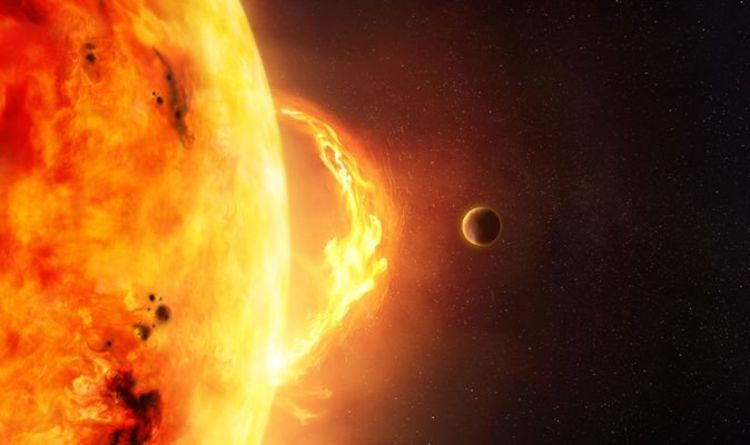The sad loss of seemingly healthy whales and dolphins who strand themselves on beaches around the world is always very upsetting and we find ourselves asking the question, “why do whales become stranded?”. Understanding why this happens we must think outside of the norm as our whales and dolphins do not function in the same way we do. Their way of travelling is very much out of this world and plays a huge roll in how they live a nomadic life and the challenges they face.

Solar Storms
The power of the sun is extraordinary and there are certain events known as solar storms which send subatomic particles hurtling towards earth almost as fast as the speed of light. The powerful gases surrounding the sun great a magnetic field and when these magnetic fields become twisted and connected we see powerful solar explosions known as solar flares. This solar activity has an enormous influence on earth and can affect satellites, GPS navigation and the earths magnetic field. The particles that are released from a coronal mass ejection (CME) from these solar flares are what trigger the northern and southern lights or aurora.

Affect on Whales
The affects on whales has only recently been discovered but as we look further into these events we can see the connection through a very unique character… the pigeon. Homing pigeons are world renowned for their ability to navigate back to their home with one individual flying from France to Vietnam, that is a distance of over 11,000 kilometres! They are believed to achieve this through their use of the earths magnetic field and when there is a powerful solar flare the magnetic field is distorted. The natural GPS for these pigeons is now affected and even by using their sense of smell and sound they are still limited to finding their way back home and can become disoriented.

Whales and dolphins also travel thousands of kilometres throughout the year and most often we see it is the oceanic species who become stranded most frequently. The way of navigation for these ocean nomads needs to be better understood but the correlation of using magnetic fields for navigation is highly probable. During these long journeys their migration path or prey may bring them closer to the coastlines. Could the unfortunate timing of a solar storm affect their navigation at a crucial moment and send them in the wrong direction. Finding themselves in shallow waters, species such as Sperm Whales and Pilot Whales become disorientated and their navigational like sonar appears to stop working correctly.
Disorientated and not familiar with navigation in shallow environments, could this be one of the reasons we see strandings of healthy whales? The stranding of 29 teenage male Sperm Whales in the North Sea in 2016 has lead scientists to believe the event of a solar flare affecting their navigation could be the cause. Young males will join in a bachelor pod as they leave their mums and sisters to migrate towards cooler waters to begin feeding on squid and “bulking” up. During this migration these young males seem to have made a wrong turn and found themselves in the North Sea which is shallow and lacks an important food source and the reason for their migration, squid.
The younger age group of these males can lead to inexperienced decisions and the lack of ability to adjust to this change in their GPS. The shift of the magnetic field can be over 400 kilometres and for a young whale this would be a difficult adjustment, when coupled with shallow water we can start to appreciate the situation they may find themselves in. Sadly for these males it seems an unfortunate increase in solar activity that was recorded before the strandings happened at a fundamental crossroads in their migration and their decision sent them in the wrong direction.
This correlation between solar activity and whale strandings is certainly not true for every case. Different situations and environments such as sick or injured whales, submarine activity, chasing prey, adverse weather, strong family bonds and many other factors must be taken into consideration. The question that must be asked though is why do some of the most highly intelligent creatures on this planet who are perfectly healthy and capable of enormous migrations, make a perilous decision to move into shallow waters that affects their sonar?
We can see that in certain situations where perfectly healthy whales find themselves stranding we must look further afield than simply matters that happen in their immediate environment. Their way of life is very much outside of this would at certain times and we must appreciate this and think outside the box when investigating the reasons behind their decisions.






